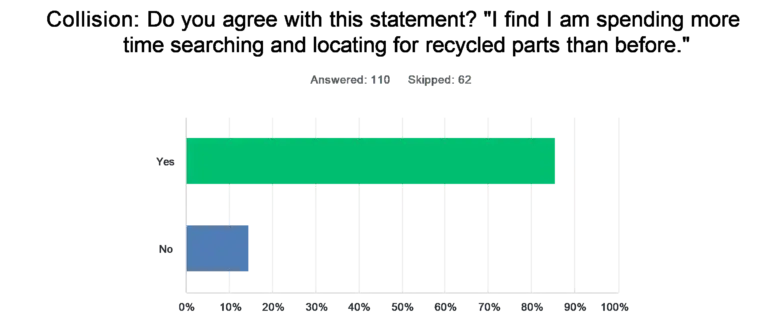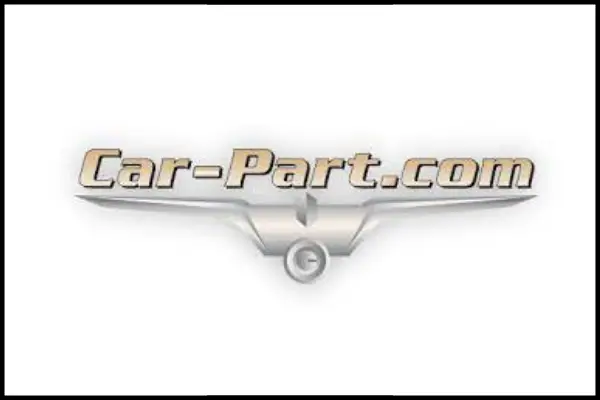The Automotive Retailers Association (ARA) conducted an industry survey on locating and purchasing recycled parts. The survey results are below.
In September of 2021, the Insurance Corporation of British Columbia (ICBC) announced that it will begin phasing out the Allied Recyclers Parts Locating (APL) system and replacing it with Car-Part.com. The announcement caught everyone off-guard, as there had been no prior consultation on the matter. The changes have caused frustration for both auto recyclers and collision repair shops. In an effort to understand the issues, back in February, the ARA asked the auto recycling and collision repair industries to provide feedback on their experience transitioning from Allied to Car-Part. We had over 180 responses to our survey. Below are the summary results.
Question #1:
We asked auto recycling and collision repair shops: Has the replacement of Allied with Car-Part improved operation efficiency? Fifty-five percent of recyclers said no and only 35 percent said yes to this question. Eighty percent of collision shops said it did not improve operation efficiency. The reasons are stated below.
Question #2
We asked, which system do you prefer? This was fairly evenly split among recyclers, with a slight majority preferring Allied over Car-Part. However, collision repair shops favoured Allied over Car-Part.
Question #3
We asked collision repair shops whether they were now spending more time searching for recycled parts. Eighty-five percent answered yes. This difference largely has to do with the increased time repair shops spend on the phone with suppliers, the inability of the system to search for multiple parts simultaneously, and the time it takes to find specific parts not available through the normal search functions.

Question #4
Finally, we wanted to know if either industry felt there could be a place for both Allied and Car-Part as a tool for sourcing recycled parts. Recyclers were fairly divided on this question, with most citing that it would be too difficult to maintain two systems, while collision shops overwhelmingly favoured the idea.
While there is merit to this approach, it has since been ruled out. One of the primary reasons for switching to the Car-Part system was that ICBC required a cloud-based solution, and at the time, Allied did not have this capacity. Perhaps in the future, it can develop one and return as the sole recycled parts locating system for ICBC. However, as it stands now, having two systems does not appear to be practical.
There is no doubt from the 100+ comments we received that people are frustrated. Little notice of the change was given to industry, and the implementation was too quick, which did not allow the industry the time it needed to adapt. There was also a lack of training for industry, specifically on the repair side, on how to use the system.
Car-part is working with the industry on improving the system and offering more training to those who require it. Modernizing the ICBC standards of performance (SOPs) may also help to ameliorate things. The SOPs have been a tool used in the past to help provide some level of governance for the utilization of recycled parts in the claims process. The SOPs, first developed over 25 years ago, were a generally agreed upon set of rules and guidelines for industry; however, with the transition to Car-Part.com, much of this remains ambiguous, and there is general confusion as to what the rules are. We hope to resolve these and other issues in the coming months through the ICBC recycled parts liaison committee.
